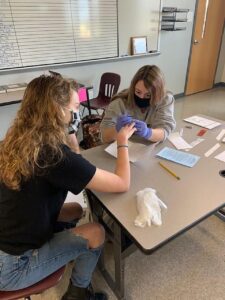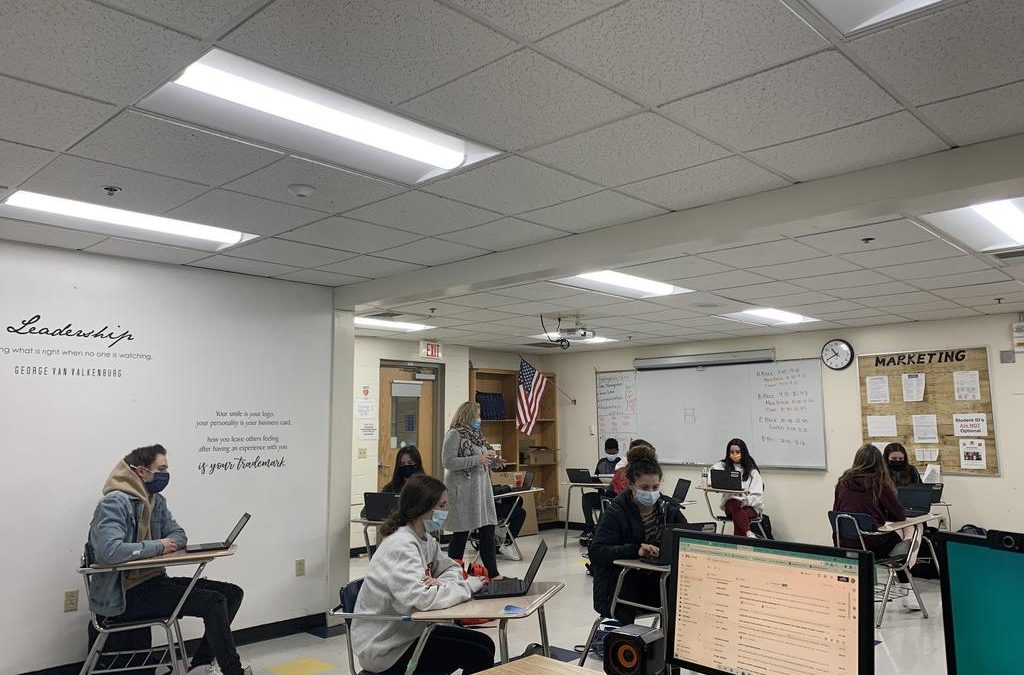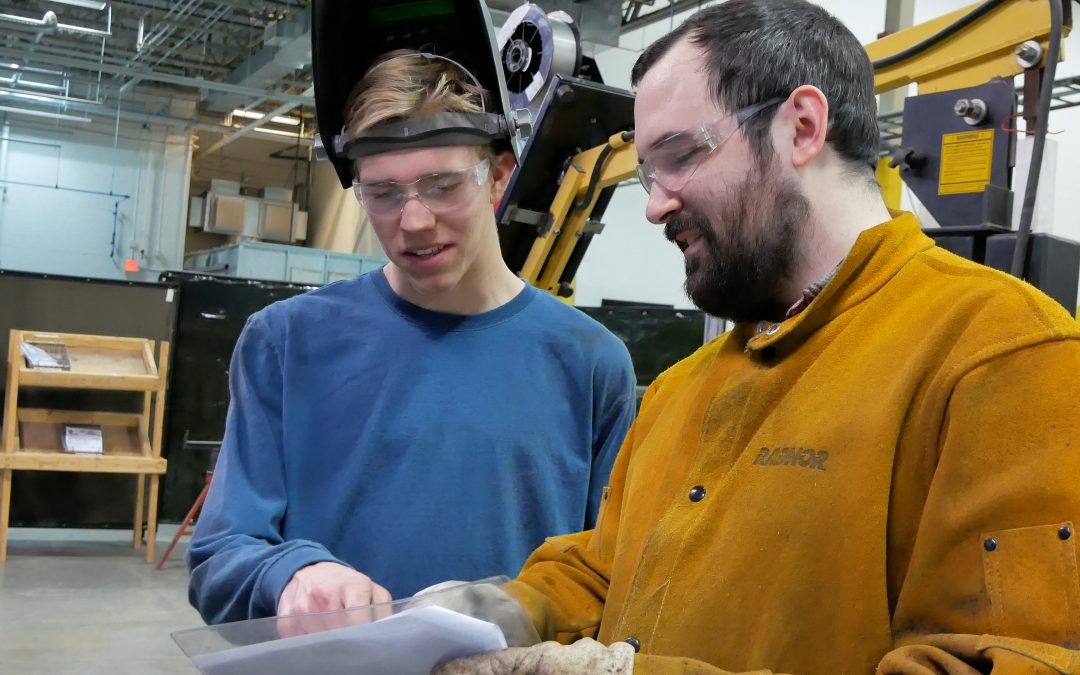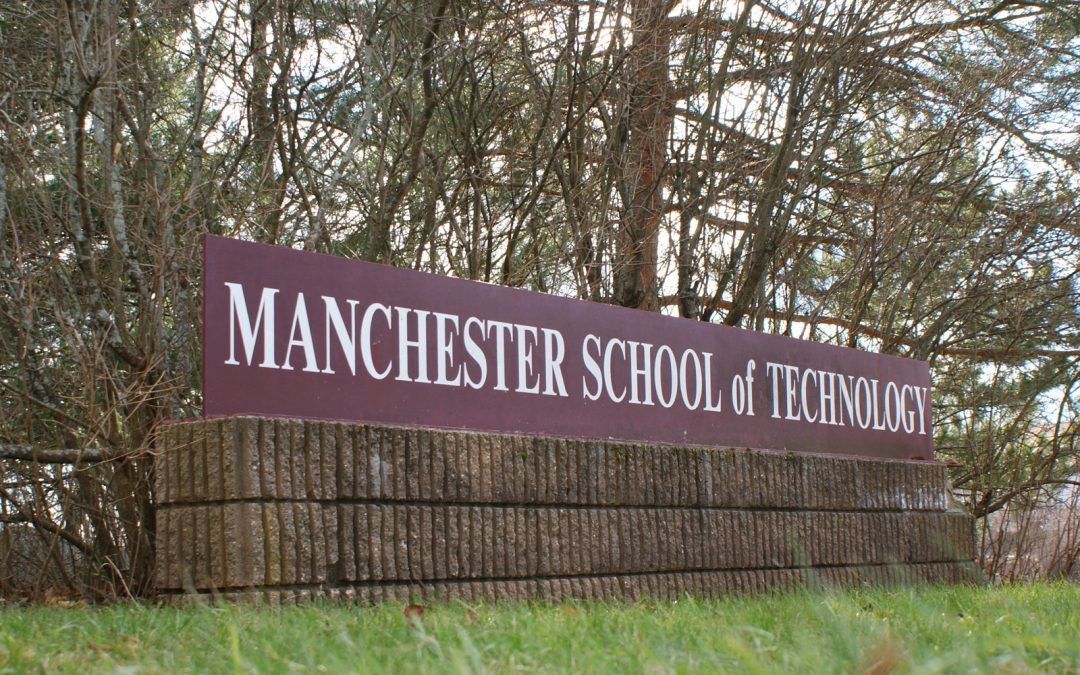
Law Enforcement and Criminal Justice Program Puts Students in the Field
One of the main objectives behind Career and Technical Education (CTE) is to provide high-school students with real-world learning opportunities as they prepare for college and a career. This focus on experiential learning has led to the development of Law Enforcement and Criminal Justice, a unique program at Huot Career and Technical Center in Laconia.
“We started this program about 8 years ago at the exploratory level, and there was a lot of student interest,” said David Warrender, Director of Career and Technical Education. Now a two-year program, Law Enforcement and Criminal Justice covers a variety of related topics, including the social and political influences that contribute to law enforcement. In addition to learning about different policing philosophies, students study constitutional law and major United States and New Hampshire Supreme Court cases.
Bill Clary, retired police officer with 28 years service, teaches the program. According to him, the program is unique in its focus on building community partnerships, which provides students with numerous opportunities to directly engage with professionals in the field. “I have built relationships with every police department in Belknap County,” he said. “Some departments take interns from our program where students can ride along with a police officer, while other departments come in and teach a class or do a demonstration.”
Clary has forged partnerships with New Hampshire State Police, Belknap County Jail, Belknap County Sheriff, Belknap County Attorney, New Hampshire Fish and Game, and Marine Patrol Bureau among other agencies. “The only way we can teach these students what it’s like out there is to show them what it’s like out there,” he added.
Kris Kelley, Deputy Chief of the Gilford Police Department, said individuals who are often successful in getting hired at a law enforcement agency are those who take advantage of these types of programs. “The Huot Technical program provides great insight into law enforcement, while providing firsthand knowledge and expectations of the profession, giving students a leg up on the average applicant without any background,” he said.
Regarding internships, Kelley said they help students gain critical insight into the daily job requirements at area agencies, allowing them to ask questions to gain a deeper understanding. “I really see it as a great opportunity for both the agency and the student, as they may decide to work in the field someday,” he said. “At the very least, they have gained a little more understanding as a citizen, which may give them a slightly different perspective than that of the average person.”

The program at Huot Career and Technical Center has led to many students securing immediate employment at various agencies, including Laconia Police Department, Belmont Police Department, State Police, Maine Corrections and Fire Service. Many have gone on to colleges, some of which include University of New Hampshire, Saint Anselm College, George Mason University, and others.
One of three former students who now work for the Marine Patrol Bureau, Michelle Gallant cited the program’s experiential learning components as critical in her current career choice. “I met extraordinary guest speakers from the law enforcement profession, and I learned first-hand experiences and information from Mr. Clary,” she said. “I was able to go on several field trips to the Laconia Circuit Court, Belknap County Jail, the Laconia Police Department, and more.”
In addition to providing students with a tangible glimpse into a possible career, Clary said the program helps students develop general life skills, such as resume preparation, job interviews and public speaking. He also provides students with assignments in which they must analyze a current issue from both sides. “We want to make sure the students understand both sides and listen,” he said. ”If students can explain both sides of any issues and listen to other viewpoints, we will all be better off for it.”
Huot Career and Technical Center is one of 28 CTE centers throughout New Hampshire.




